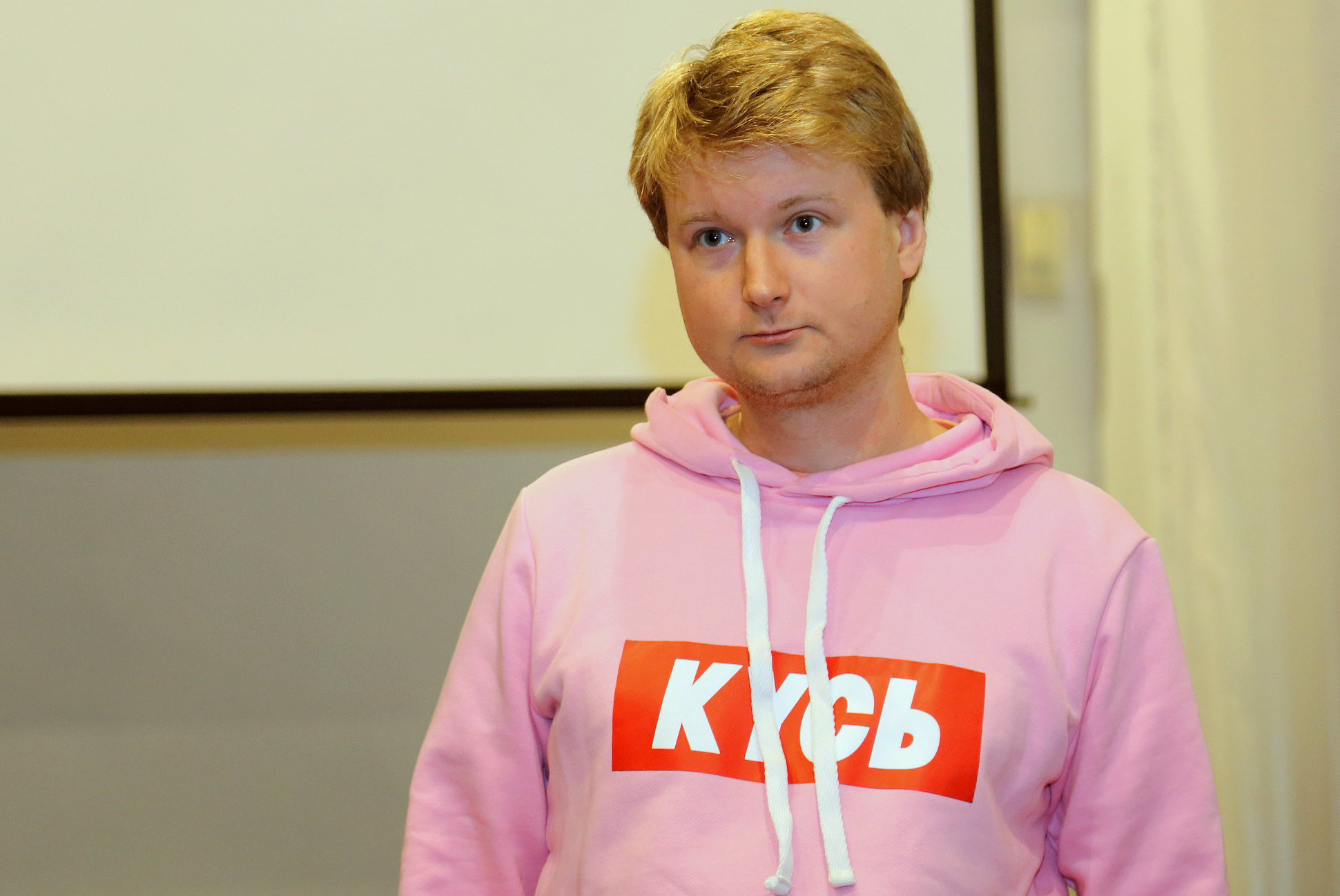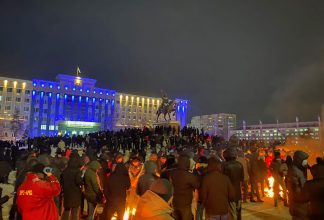“People were being killed. We couldn’t stay quiet about it”

Mediazona is an independent Russian media platform, founded in 2014 by the members of the punk rock band Pussy Riot. It was created as a niche project to cover injustices and violations within the Russian penal system. But as Russia was rapidly turning into a more repressive state, the platform has, too, grown and expanded. With unlawful detentions and imprisonments becoming common place in the country, Mediazona has become one of Russia’s major media outlets.
Shortly after Russia invaded Ukraine in February 2022, Mediazona’s editorial team decided to leave the country. Civil Rights Defenders spoke to Yegor Skovoroda, Mediazona’s editor, about the team’s work in exile and the fate of the remaining Russian independent media in the time of war censorship.
How did your work change after Russia invaded Ukraine in February?
“We were preparing for some major changes ahead of time. Throughout 2021, the state was executing mass repressions against independent media, and was tightening the screws very hard. In a way, we were ready: we had internal instructions on how to be prepared if we were to leave the country on short notice.
During the first few days after the start of the war it was still not very clear what was going to happen. Plus, we did not have the time to think – we were all working non-stop [after the start of the invasion, Mediazona switched to focusing on the war]. But then the government issued that horrible law on “fakes”, practically banning calling the war a war, and started blocking everyone’s websites [the Russian media regulator Roskomnadzor blocked Mediazona’s site on 6 March for its coverage of the war in Ukraine]. It became clear that we could not obey the censorship because there was a war going on, and people were being killed. We could not stay quiet about it. Plus, we knew that the state would not stop at banning one word and that the censorship would be permeating deeper. It became clear that it would not be possible to work from inside the country. So, our editorial team decided to leave.”
How has moving the entire editorial staff abroad affected your work?
“All in all, we are trying to continue working as before, but of course, it has become harder on different levels. We have to come up with technical solutions for various things. For instance, many Russian state websites are cutting off access for non-Russian IP addresses because of potential DDoS attacks [a cyber-attack in which the perpetrator seeks to make a network resource unavailable to its intended users], so we need to have a separate Russian IP address to access them. And of course, you cannot get up and go somewhere in Russia yourself – you have to either find the answer to your question by phone or ask someone from inside the country to go.
There is another big problem which is not there just yet, but concerns me. I am worried that we will be getting contextually remote from Russia because we do not live in the country and will not feel the atmosphere it has, the context that is in the air.”
Did you experience any censorship or self-censorship before the invasion, and if you did, what forms did it take?
“I think that before the war we did not have censorship per se, but during the last year it has become increasingly hard to not implement some form of self-censorship. There are two sides to it, in fact: on one hand, it was difficult to avoid “playing it safe” – with this idiotic “foreign agent” law and a constant danger of being fined for everything you write hanging over your head.
On the other hand, the formal laws are so badly written and so convoluted that no one really understands them, which also makes it easy for the state to interpret them however they want to. That is why it was practically impossible to avoid risks, no matter how much one tried. We just tried to stick to the regulations in the most formal way, while still preparing for being accused of violating something without even knowing it.”
Do you track the readers’ interest in your publications since the Russian invasion of Ukraine – did it grow or drop?
“Since the start of the war the number of our readers has significantly increased. Everyone wants to understand what is happening and why. This is a huge catastrophe, and it brought a big readers’ interest with it. It has died down a little now, because the war has been going on for over three months and people are just tired. It is hard to evaluate the exact percentage of the readers from Russia because they have to use VPNs to access our website [Mediazona’s website remains blocked in Russia]. Our Telegram channel has grown a lot, too, as well as our Instagram and Twitter. We would also like to develop our YouTube channel, but for now we do not have enough resources to do so.”
In Western media, it is often said that there are no independent media or access to them in Russia, hence people in the country only watch propaganda and support the war. Do you agree with this?
“I cannot really evaluate how many people support the war and how many that do not, because I am sceptical about the results of sociological surveys conducted during wartime.
But if someone is interested in alternative information, they would find it – there is internet everywhere. One problem is that information online can include some extreme conspiracy theories, so many people who start looking for alternative information are falling into this trap – there is a lot of informational garbage.
In any case, a person in Russia has to make an effort to look for alternative reporting. And if one does not want to make an effort, and just turns on the TV, even if one does not quite like what is happening in the country but still relies on TV for news, they pump you up with an enormous amount of propaganda.
Finally, it is also extremely easy to fall for ultra-patriotism and ressentiment – in principle, people in all countries fall for these sentiments easily. And when this propaganda is aggressively imposed on you from all sides, then it is even easier to do so, especially when the war does not yet directly affect your life. Now that it starts doing so in Russia, I think that this enthusiasm will die down.”
Have you been thinking of expanding your audience and trying to reach this population that is mainly consuming state TV propaganda?
“Yes, we have, but it is very hard. One potential area of expansion is YouTube, and we are also thinking about utilising messaging apps such as Viber and WhatsApp. It seems like it could be an effective way to reach a different audience. We are working on it.”
If the war continues much longer and you will have to stay and work from abroad, how do you envision the future work of your media platform and that of other independent Russian media in exile?
“We will still be able to continue working remotely. We can find and work with sources and collaborate with journalists from the regions who can publish anonymously, so that we would not be putting them in danger. This will partially depend on how fast and how much everything will be “closing in” in Russia, and how much people will be afraid of speaking with us even anonymously. Russia is currently in the process of tightening the screws, issuing new laws that increasingly make any collaboration with any foreign organisation seen as collaborating with the secret services. But in any case, the information will continue to come out – it was happening even in the USSR, and there was no internet and less opportunities than we have now.”
What kind of support can the international community provide to the remaining Russian independent media?
“Journalists who have left have some basic problems: tons of bureaucracy, financial and visa challenges – it is a big problem for all of us who had to relocate. Outlets that lived off advertising lost that income source, those who were supported by crowdfunding lost it too, because people from Russia cannot donate money to the foreign accounts now. So, if people can subscribe to monthly donations, it would be a great support. And of course, one can help by promoting our work and spreading the word that we exist, we are resilient, and we are committed to continue our work no matter what.”


